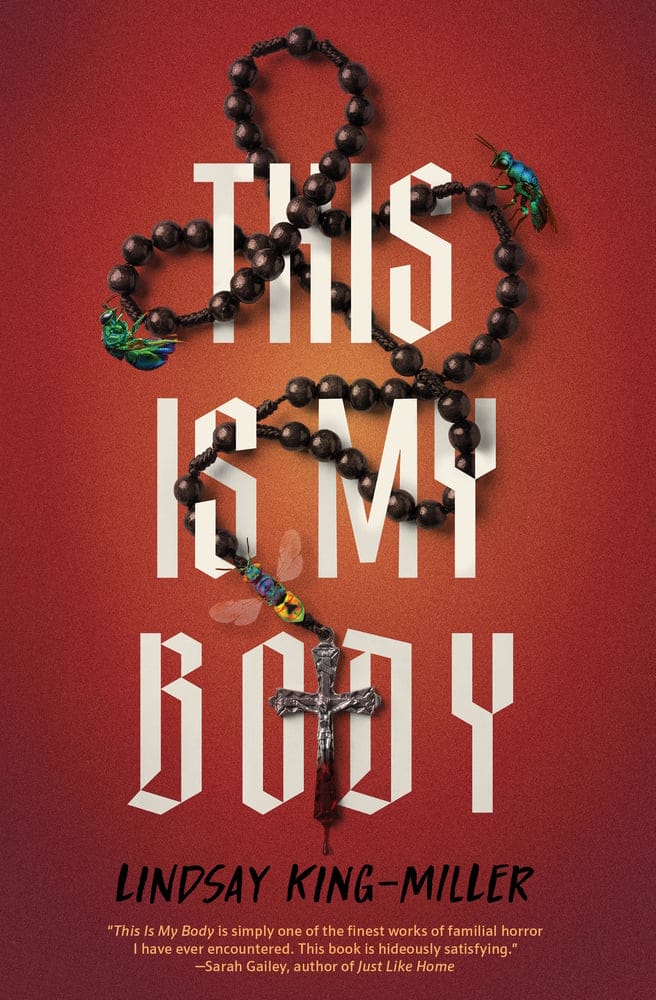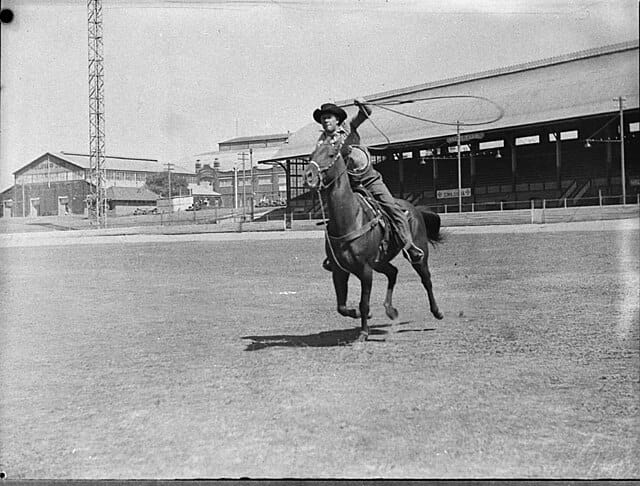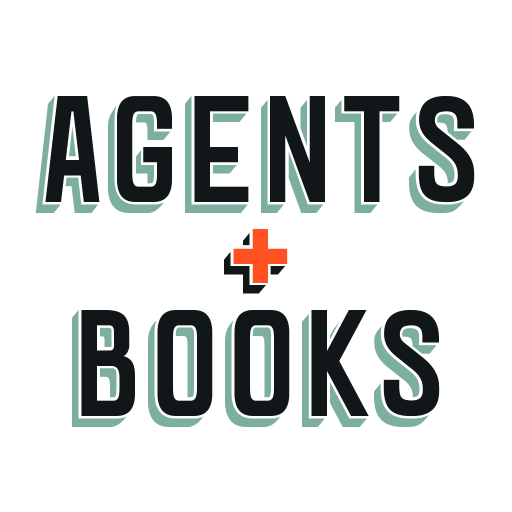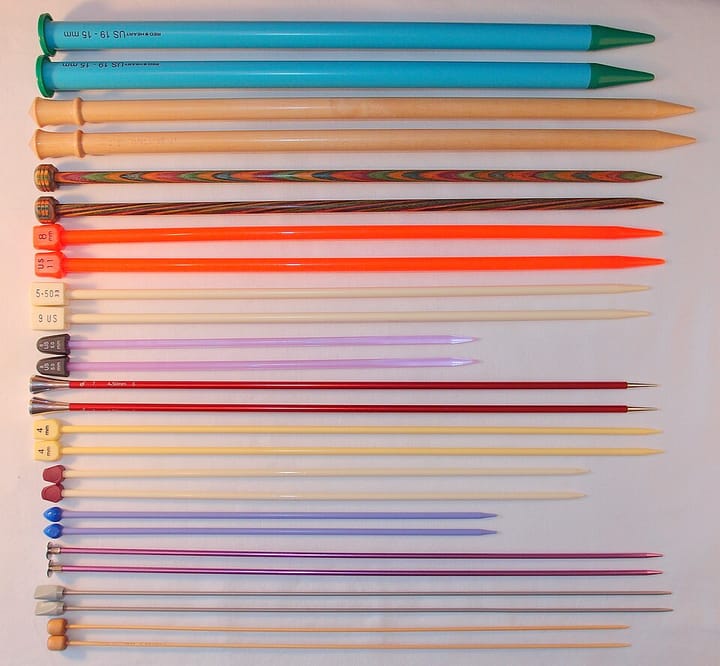Destination: Publication?
Lindsay King-Miller on the Journey of Writing and Publishing

Hello readers!
What did I miss last week? Nothing? Good.
I was on vacation in Scotland and England with my family. I got to hold an owl! I climbed to the top of Arthur’s Seat! I saw four plays at the Fringe and in London! I spent a week with the people I love the most! It was a great vacation. I did not write here, as you may or may not have noticed. Isn’t it great? Taking breaks is great.

I missed, though, the publication day of Lindsay King-Miller’s second novel, third book THIS IS MY BODY, which Sarah Gailey calls “simply one of the finest works of familiar horror I have ever encountered.” You might know Lindsay from her first novel, THE Z WORD (2024), which we pitched as what if zombies at Pride and boy does it deliver. Or you might remember Lindsay from her fantastic column on The Hairpin, Ask a Queer Chick (2016), which is also the title of her first book. I am sorry to have missed the initial fanfare of her pub day, but guess what? Books come out on one day and are then available for purchase forever more!1 Let us celebrate books everyday, not just the day they come out?2
I wanted to talk to Lindsay about what it was like to go eight years between books one and two, how she went from non-fiction to fiction, and what a career can look like in the rearview mirror. Join us, won’t you?
KM: Tell readers about how your first book came about. What did you think your career would look like then?
LKM: My first book was based on my advice column for The Hairpin (RIP), called Ask A Queer Chick. I'd been writing that column for about five years when the book came out. It was fairly popular in its own little niche, and it was another Hairpin writer, Jolie Kerr, who introduced me to you, Kate. That first book fell into place so quickly it felt charmed.
Before Ask A Queer Chick came out, I was working to build a career as a freelance writer, doing a mix of personal essays, reporting, and book and movie reviews. Naively, I thought selling my first book easily meant everything after that would be easy too. I wanted my next book to be a sort of reported memoir about my partner’s attempts to conceive and pregnancy as a queer couple. I'd been writing a column about that for After Ellen, back before that site became a hellscape of transphobia. You probably remember that we wrote and sent out a book proposal, which I still think was good! But it didn't get any traction, and the feedback we got was that the subject was too niche. On top of that, Ask A Queer Chick wasn’t selling as well as predicted, so no publishers were clamoring for another book from me.
After that I spent quite a few years trying to figure out what my next project would be. During that same time period, making a living as a freelance writer became more and more difficult. A lot of the websites I wrote for shut down, mostly because of financial issues, and the editors I worked with were laid off or got fed up and left publishing entirely. It started to feel hopeless. I thought maybe that first book was the pinnacle of my career.
KM: How did your first novel come about?
LKM: Way back when I was a kid who loved R.L. Stine, I used to write scary stories heavily inspired by Goosebumps. In high school and college I wrote poetry, and then for a long time I was trying to build a career on reporting and creative nonfiction. Around the time my oldest child was born, I started writing short stories again. Then, in 2020, with all the stress and uncertainty of the early pandemic, writing fiction became a vital outlet for me. I think I wrote more short stories that year than any year before or since. In November I formed a long-distance NaNoWriMo group with some friends from my poetry slam days. In addition to being the creative pressure valve I needed, having this group to check in with kept me going when my in-person social life was non-existent. I didn't finish a draft of the novel in November, but I built up enough momentum that I wanted to keep going and finish the book.
When I sent you the novel draft, we were in the middle of a conversation about whether to try submitting a collection of short stories. I remember I sent you this other book and went “by the way, I wrote this too, if you want to take a look at it.” I was trying to be really nonchalant in case you hated it, but you immediately said we should set the short stories aside and focus on this.
It wasn’t a short journey from there. The Z Word accrued a healthy stack of rejections, as well as a single revise & resubmit. It took months of revisions to turn that R&R into an offer, and another round after the book was sold. But it did finally happen!
KM: Publishing is a tough, long road. What would you tell your past self about the journey ahead?
LKM: When my first book was published, I thought I'd made it, that I was going to be a Successful Writer now. I was confused and dismayed to realize that wasn’t the case. I’d accomplished this major thing, this lifelong goal, and it didn’t really change anything. It didn’t make it easier to sell my next book or even pitch an article. My thinking before that first book was very black and white: I thought I was about to be a success, and then, when I didn't feel like I imagined being successful would feel, I figured that meant I was a failure.
I wish I could go back and tell myself not to take one book as the measure of my worth as a writer, for good or bad. Selling that first book feels so momentous, but even if it doesn’t go well, that doesn’t mean your career is doomed. Triumphs and setbacks are all part of the process.
“When my first book was published, I thought I'd made it, that I was going to be a Successful Writer now. I was confused and dismayed to realize that wasn’t the case.”
KM: There is so much anxiety (perceived and real) about publishing books on a specific schedule, like authors who think you have to publish a book a year or you'll fail. What has your experience taught you about that?
LKM: What I’ve learned is that failure and success aren’t absolute or binary. I do feel in a way like I had a failed writing career and then embarked on a new one, so maybe it's a little bit true. But just because my first book didn't launch my career like I hoped doesn't mean it was a waste of time. I met you! I made friends and connections and developed skills that I still use.
The fantasy is that you publish your first book and it’s such a smash that you can write and publish whatever you want after that. There are probably writers who have that experience, but it’s not most of us. A lot of us are just going to struggle along from one contract to the next. There will be some good seasons and some dry seasons, but you're not going to be a definitive success or a definitive failure.
Obviously it's hard to avoid getting hung up on whether you have the next contract or not. My new book is out, and my next contract fell through, and it's scary, not knowing when I might publish another book. Having something under contract means there's a little money, a little breathing room to write more, which I think is really what most writers dream of—just having all the time you need to write whatever you want and not have to worry about the mortgage. That's true success.
What we have to figure out as writers is how to want that without measuring our self-worth by whether we've achieved it. You can't let wanting it get so big in your head that it's taking up the room you need to write. I was there for a while, trying desperately to figure out what I could sell, how I could save my career. What finally pulled me out of that tailspin was writing a book that I really, really wanted to write. It's a little too easy to say that I didn't write The Z Word because I thought it would sell, and that's why it sold. It's like saying that you'll meet the right person when you stop looking. But, damn, it's so hard to write and sell and edit and publish a book, and it's never guaranteed, so why bother doing it for a story you don't love?
I’m just going to sit here and let all the sink in. Why bother doing it for a story you don’t love is fucking RIGHT. Lindsay’s writing always resonates with me, but this is going to stick with me for a long, long while. I hope you read Lindsay’s new book, or her old ones, and if you’re embarking on the writing and publishing journey like Lindsay, remember that it’s a long road and the destination is not publication. It’s writing another book.
OXOXOXOXOXOX,
Kate




Comments ()